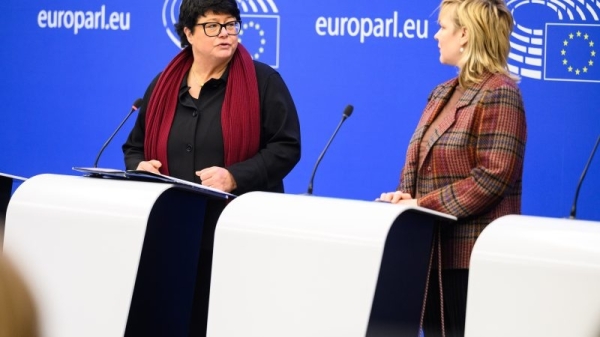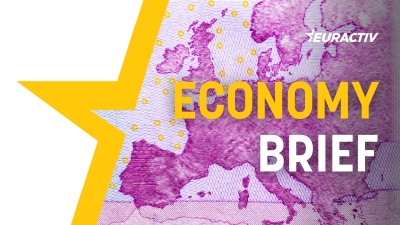EU Parliament passes European Media Freedom Act, concerns over spyware remain

The European Parliament has voted overwhelmingly in favour of the European Media Freedom Act (EMFA), a landmark legislation to protect journalists and media freedom, though concerns remain over the use of spyware to monitor media.
The provisional agreement of the EMFA was passed with 464 votes in favour, 92 against, and 65 abstentions in a vote on Wednesday (13 March).
Rapporteur of the Civil Liberties Committee, Ramona Strugariu, said that journalists now have a “set of tools” to protect them and help them face the challenges, interference, and pressure that often come with the job.
“This Regulation is a response to Orbán, Fico, Janša, Putin and those who want to transform media into their own propaganda tools or spread fake news and destabilise our democracies,” Strugariu added.
Under the new law, member states must step up protections for media independence, journalists’ work, editorial independence, and ownership transparency. It also regulates the allocation of state advertising and prevents online platforms such as X and Facebook from arbitrarily deleting or restricting media content.
To protect journalists and their work, authorities will be prohibited from ordering them to reveal sources, including through detention, sanctions, the searching of premises, or the use of intrusive surveillance software on devices.
Press freedom organisations broadly welcomed the law’s adoption, calling on national governments to effectively implement its measures.
Spyware concerns
However, not everyone has been convinced that the text’s provisions go far enough, particularly concerning the use of spyware to monitor journalists’ work.
Under the EMFA, spyware will be allowed on a “case-by-case basis and subject to authorisation by a juridical authority investigating serious crimes punishable by a custodial sentence”.
In cases where surveillance is authorised, subjects have the right to be informed after it has occurred and will retain the right to challenge it in court.
The spyware provision was subject to intense debate at the end of 2023 as several member states fought to include wording that would allow spyware against journalists in national security cases.

EU media law enters home stretch but spyware, disinformation concerns persist
The European Parliament adopted its position on the European Media Freedom Act (EMFA) on Tuesday (3 October), though advocacy groups have renewed criticisms of certain provisions they say are falling short in protection against spyware and disinformation.
One day before the vote, Left MEP Clare Daly sounded the alarm on provisions related to the use of spyware against journalists.
“As it currently stands, the EMFA effectively legalises the use of spyware against journalists,” she argued, continuing that the national security exemption remains but has just been reworded.
This will inevitably mean that future rules on spyware at the EU level will permit its use on ordinary citizens, only with fewer safeguards, she continued, describing the legislation as “profoundly inadequate”.
In a statement following EMFA’s approval, a broad coalition of media freedom groups including the International Press Institute called on national governments to build on the legislation.
“Member States can, and should, go much further in establishing stronger safeguards to protect media freedom and pluralism and journalists’ rights, in particular from the use of intrusive surveillance and spyware,” they wrote.
Increased funding transparency
Under the new rules, media will have to report on funds received from state advertising and financial support. Public funds dished out to media will have to be allocated via transparent and non-discriminatory criteria, and all state media advertising spending must be public, including the total amount and amount per outlet.
In terms of ownership, all media must make public information on their owners in a national database, including declaring any state ownership.
Public media must appoint all heads and board members through fully transparent and non-discriminatory processes and for a sufficiently long mandate. They will not be able to be dismissed before the end of their term, except in cases where they no longer meet professional criteria.
In terms of funding, public media must ensure transparency and objective procedures, with all funding being sustainable and predictable.

New EU media law: Ownership transparency provision needs broader scope
This week’s trilogue negotiations on the European Media Freedom Act will include the key issue of media ownership transparency. The outcome will have tremendous consequences for the future of media freedom in the EU, write Eva Simon and Jascha Galaski.
Read more with Euractiv




